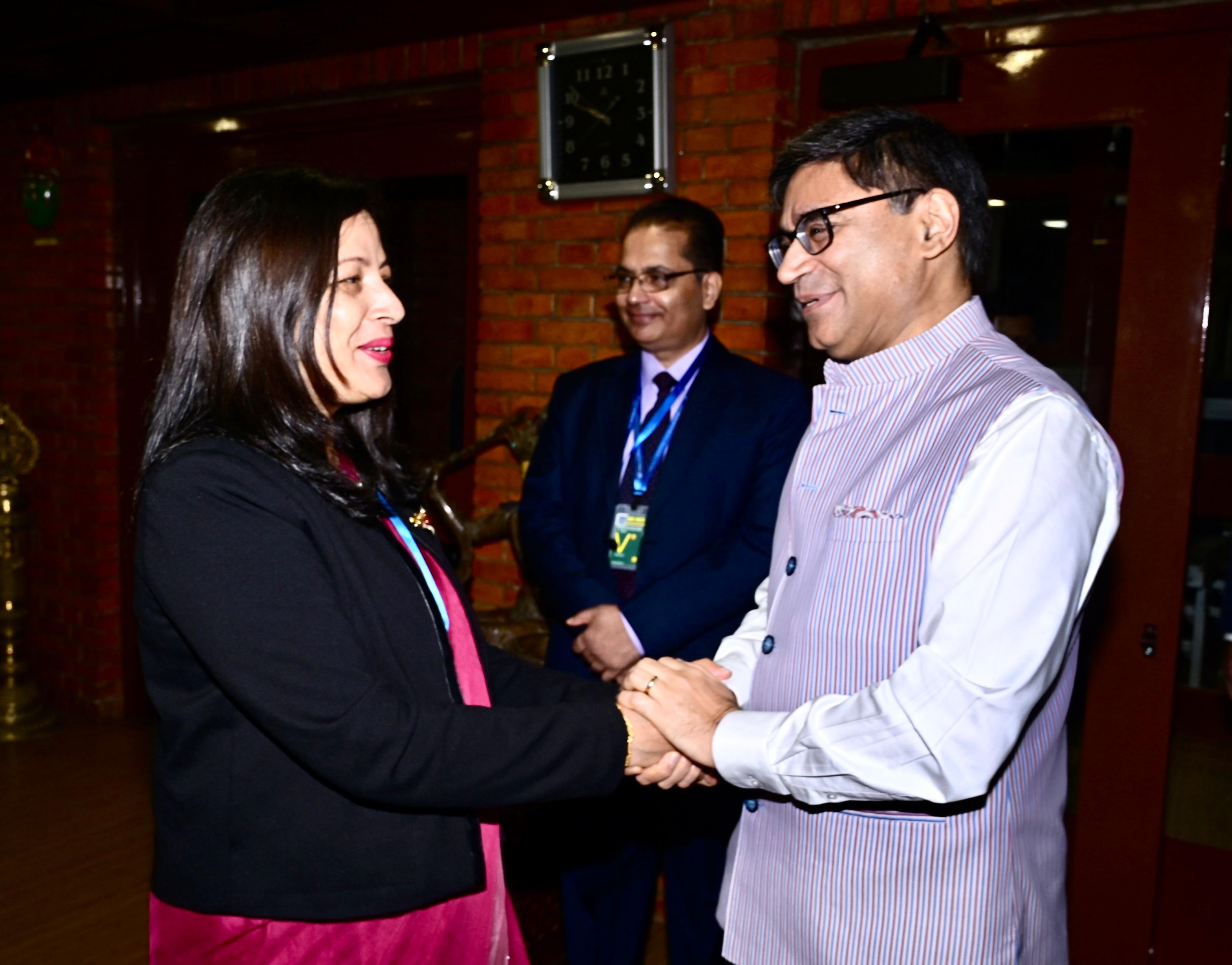The Hidden Strategy Nepal Needs Against China – Inspired by India’s Diplomacy!

Nepal, currently facing severe diplomatic challenges, can learn valuable lessons from the experience of India's Foreign Secretary, Vikram Misri. Known as a China expert, Misri has successfully navigated India's complex relationship with China, providing insights that could be crucial for Nepal as it grapples with similar tensions.
Understanding Vikram Misri’s Expertise
Vikram Misri’s extensive experience with China is rooted in his long and distinguished career in diplomacy. Having served as India’s Ambassador to China from 2019 to 2021, Misri dealt directly with some of the most challenging periods in India-China relations, including the Doklam standoff and the Galwan Valley clash. His role involved managing not just the immediate crisis but also strategizing long-term diplomatic and geopolitical responses. Misri’s approach has always been characterized by a deep understanding of Chinese strategic behavior and a balanced, pragmatic stance that seeks to protect national interests while avoiding unnecessary escalation.
Nepal’s Diplomatic Challenges with China
Nepal is currently facing significant pressure from China, much like India has in the past. The increasing Chinese influence in Nepal has raised concerns not only in Kathmandu but across South Asia. China’s aggressive "Wolf Warrior" diplomacy, its "salami slicing" tactics along the border, and its economic maneuvers have put Nepal in a delicate position. Border encroachments in areas like Humla and Mustang are just the tip of the iceberg. China’s influence extends into Nepal’s political sphere, economic dependencies, and even cultural interventions, threatening Nepal’s sovereignty and autonomy.
The growing Chinese influence through projects like the Pokhara and Lumbini international airports, often funded by Chinese loans, has drawn Nepal into a debt trap. While these projects seem beneficial on the surface, they carry the risk of significant economic strain and the potential loss of control over critical infrastructure, reminiscent of the debt diplomacy China has employed in other countries. This situation is increasingly being seen as a form of neo-colonialism, where Nepal's long-term sovereignty might be compromised.
Lessons Nepal Can Learn from Vikram Misri’s Approach
-
Strategic Clarity: Misri's approach to dealing with China has always been guided by a clear understanding of India’s strategic goals. Nepal needs to adopt a similar clarity in its foreign policy. While maintaining good relations with China is important, Nepal must ensure that these relations do not come at the cost of its sovereignty or economic stability.
-
Balancing Relationships: Just as Misri managed to balance India’s relations with China and other global powers, Nepal must strive to maintain a delicate balance between its powerful neighbors, India and China. Nepal's historical, cultural, and geopolitical ties with India and other democratic nations are crucial and should not be undermined by growing Chinese influence.
-
Economic Prudence: Misri’s experience highlights the importance of avoiding economic dependencies that could lead to strategic vulnerabilities. Nepal must be cautious in accepting Chinese loans and investments that could lead to a debt trap, and instead, seek more sustainable, transparent, and mutually beneficial partnerships.
-
Engaging International Community: Misri’s tenure shows the importance of engaging with the broader international community to counterbalance China’s influence. Nepal should strengthen its ties with democratic countries like the United States, European Union, Japan, and South Korea, which have historically supported Nepal’s development without compromising its sovereignty.
-
Crisis Management: In times of border tensions or diplomatic disputes, Misri’s calm and calculated approach to crisis management is something Nepal can emulate. Diplomatic engagements should be aimed at de-escalation and preserving national interests without resorting to aggressive posturing.
Challenges in Adopting Misri’s Strategies
Nepal faces several challenges in trying to apply Misri’s strategies to its situation:
-
Geopolitical Vulnerability: Unlike India, Nepal is a smaller, landlocked country with limited leverage against its powerful neighbors. This makes balancing relations with China and India far more complex and risky.
-
Economic Dependence: Nepal’s economic dependence on China, especially through infrastructure projects, makes it difficult to push back against Chinese influence without risking economic fallout.
-
Political Instability: Nepal’s internal political instability and factionalism can be exploited by external powers, making a coherent and consistent foreign policy challenging to maintain.
-
Public Sentiment: Managing public sentiment, which can be swayed by nationalist rhetoric or economic needs, adds another layer of difficulty in navigating diplomatic tensions.
Conclusion: Charting Nepal’s Diplomatic Course
Nepal stands at a critical juncture where its strategic decisions will have long-term implications for its sovereignty, development, and regional stability. By learning from Vikram Misri’s experience and applying a measured, strategic approach to its relations with China, Nepal can navigate these challenges more effectively. Ensuring a balanced, independent foreign policy that safeguards national interests, while fostering healthy relations with both India and China, is essential for Nepal’s future stability and prosperity.
Vikram Misri




![From Kathmandu to the World: How Excel Students Are Winning Big [Admission Open]](https://nepalaaja.com/img/70194/medium/excel-college-info-eng-nep-2342.jpg)


